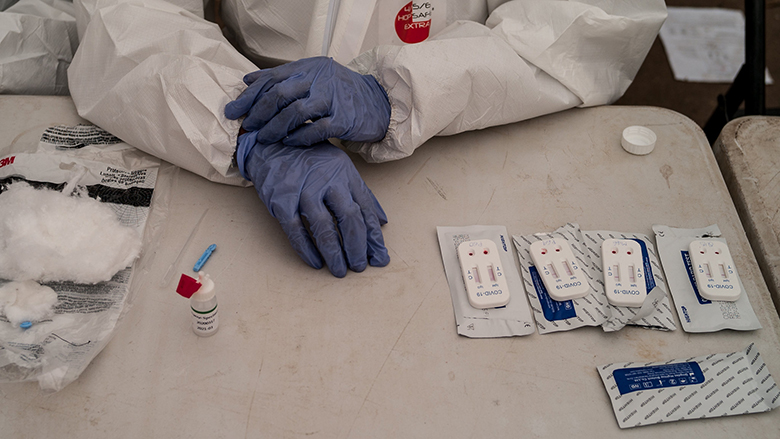As of late October 2020, Latin America remained the epicenter of the Covid-19 pandemic: there had been close to 11 million cases of infections in the region and close to 400,000 deaths, roughly 25% of all cases globally and one third of all deaths. To minimize the negative health, social and economic impacts of the pandemic, countries need to implement proactive preventive strategies to mitigate transmission and allow for economic recovery. Robust testing systems is one such strategy that can be targeted where they might be most impactful.

The World Bank released on October 29, 2020 a practical guide for countries to develop and implement proactive population-based testing strategies.
The guide provides a practical framework for the development and implementation of robust, population-level national testing strategies for Covid-19. It begins by making a distinction between passive and proactive surveillance strategies and describes experiences of several countries worldwide in implementing such strategies. It then provides a framework for the design and development of a proactive national strategy leveraging existing country information systems and considering health system capacities. It also delves into key questions of population targeting, resource allocation and prioritization. This is followed by a discussion of practical implementation issues and ideas for analysis and evaluation of the strategy itself, so that lessons learned can help fine-tune design and implementation over time.
The key messages and recommendations from this guide for health policy makers in the LAC region are:
- Proactive preventative strategies to mitigate transmission can be targeted where they might be most impactful. Testing is one such strategy that has an important role to play in early detection of infections.
- Strong testing and information systems are essential for vaccine surveillance as well. There is extensive synergy with systems required for vaccine roll-out and testing.
- The process of designing national testing strategies is iterative, with each cycle aiming to ensure efficient delivery of scarce resources to maximize population health.
- Assessing your current national strategy, where you are in the pandemic, and the data and resources available to you permits evidence-based prioritization.
- Testing systems are human resource intensive and require large and diverse groups of individuals with different areas of expertise. The scope and scale of human resource needs must be actively managed within the context of national strategies.
- The success and impact of national testing systems relies on rapid and reliable implementation of testing strategies. Priority populations must be reached to be tested and the data must be analyzed in a timely fashion to allow meaningful responses.
- A comprehensive evaluation of implemented national strategies should be undertaken at regular intervals to ensure strategies remain relevant, are providing useful data, and are making efficient use of resources.
The development and implementation of a proactive population-level, national testing strategy is paramount for the control of the Covid-19 pandemic and safe economic and social reactivation in the short- and medium-term. Experiences of countries worldwide hold invaluable lessons for policy makers rolling out national proactive testing strategies in Latin America and the Caribbean.